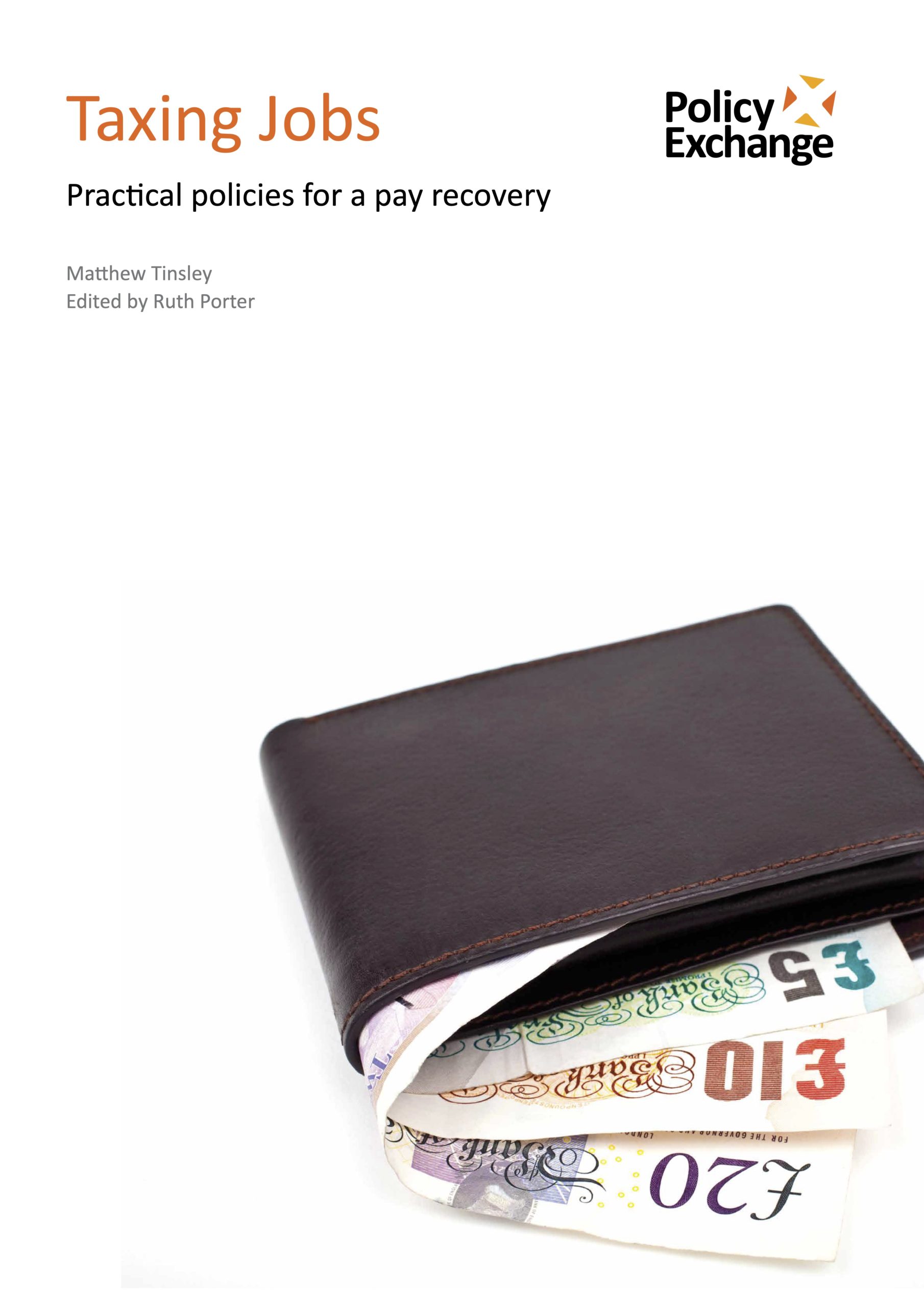
Taxing Jobs: Practical policies for a pay recovery
The government could boost employment, pay and productivity by cutting the National Insurance (NI) rate for all businesses. In our latest report, Policy Exchange shows how pay has fallen in line with output per worker throughout the recession across every region of the UK and in every sector except agriculture, forestry and fisheries. Both productivity and pay decreased sharply at the beginning of 2008, falling back to 2005 levels by the first quarter of 2009.
The report argues that wages will begin to rise and productivity will return to its pre-recession levels as employers take on more staff. However, providing a boost to the labour market in the form of a cut to the payroll tax for businesses of all sizes would speed up the rate at which companies take on more staff. This would reduce unemployment more quickly and force employers to improve productivity and therefore pay among their workforces.
The report praises recent moves to boost employment, saying that the abolition of National Insurance for workers under the age of 21 and the introduction of the Employment Allowance will have a significant impact on young workers and small businesses respectively. However, most employees work for large companies, with more than 40% in a workplace with more than 2,500 workers and a further 13% in a workplace with 500-2,499 workers. A broader response is therefore required.
The paper urges the Chancellor to increase the threshold at which all employers, regardless of size, pay National Insurance for each employee they have on their books. It recommends:
- Increasing the 2015/16 employer National Insurance threshold from £157 to £192 per week (the equivalent of £10,000 per year). This would save employers £250 a year for every person they employ and would mean that employers would no longer pay NI for 900,000 employees. The initiative would reduce government revenues by approximately £5.4billion in 2015/16.
- The government should de-prioritise increasing Income Tax personal allowance, employee National Insurance or increasing the value of tax credits. At a time when increasing wages relies on utilising the excess supply in the labour market, these approaches do not encourage firms to bring on new workers or utilise their existing workers more. They therefore subsidise low pay, rather than addressing the cause of low pay following the financial crisis.
- The Government should allow the Minimum Wage to return to its 2007 value with two more above-inflation rises in 2015 and 2016. However any permanent increase in the number of workers affected should be resisted. Any significant structural changes and complications (such as having different rates per sector or region) should also be resisted.


